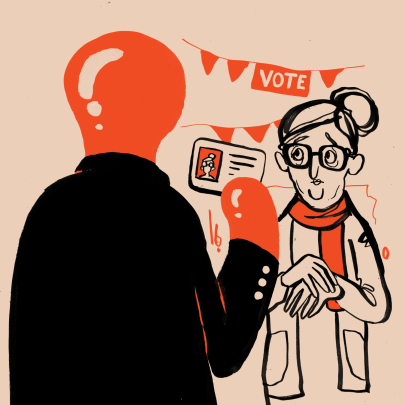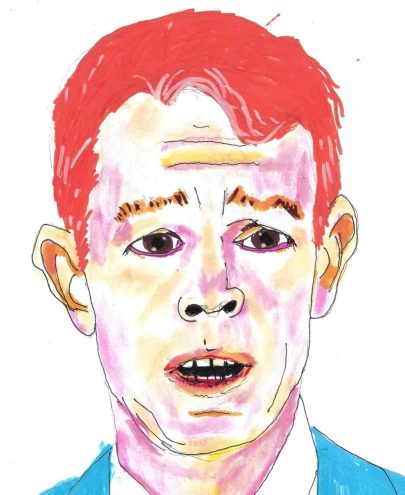May 11, 2016 Politics
The fallout from the Panama Papers demonstrates yet again that John Key doesn’t understand that something that is legal may also be unethical.
It’s one of the best lines in Better Call Saul, the television prequel to drugs drama Breaking Bad: lugubrious fixer Mike Ehrmantraut phones slippery lawyer Jimmy McGill and asks: “Are you still morally flexible?”
I’m surprised no one has asked this question directly of John Key in Parliament given that every week seems to throw up fresh evidence of his ethical elasticity.
Key often likes to frustrate his opponents in the House with “yes” or “no” answers to questions that require a more comprehensive answer but he would be stymied by this one, because — rather like asking, “Have you stopped beating your wife?” — it’s impossible to answer yes or no without incriminating yourself.
And the PM’s famous and relentless shifting of position on everything from capital gains taxes to security agency cyber-surveillance to free speech would take some defending.
The Panama Papers discussion about New Zealand’s status as a tax haven is certainly giving him a chance to show off his manoeuvres, which has become a predictable pattern in his nearly eight years in office. First, he denies there’s a problem. Then, when he is told by his pollsters people don’t believe him, he concedes things could be clearer and orders an inquiry that inevitably has narrow parameters. Then when that fails to appease the critical storm, he appears on shows such as Paul Henry where he’s likely to get a favourable hearing and can lie by omission.
Early this week, he told Henry that whenever overseas governments ask for information on trusts the New Zealand government always complies. The problem with this is that the foreign trusts set up here are shrouded in secrecy and overseas governments would have to go on a fishing expedition without knowing exactly what they were looking for.
As Otago law professor Andrew Geddis wrote on the blogsite Dim-Post: “It is quite difficult for overseas jurisdictions to know that this money is sitting in a NZ trust (because to find out they have to specifically ask about a specific trust/LTC [look-through company], and you can’t ask about what you don’t know).
“So what we need to do is force such trusts/LTCs to disclose their beneficial owners and then make that information available to overseas jurisdictions as a matter of course (so they can check to see that those folk are complying with their domestic tax demands).”
Above: The Prime Minister, John Key, responded to the events, revelations and accusations of the day, in his post Cabinet media conference Monday, May 9th, 2016. Source: RNZ YouTube.
It’s not rocket science but so far Key appears to be counting on much of the fuss having died down by the time tax expert John Shewan presents his report at the end of June, although increasingly critical public soundings from his pet pollster, David Farrar, could force him to take more decisive action sooner.
Key’s MO faced with a tricky problem is to hammer a couple of points relentlessly, even if they are untrue or only partly true.
Key’s MO faced with a tricky problem is to hammer a couple of points relentlessly, even if they are untrue or only partly true. In this case, it is that tax havens require secrecy but New Zealand doesn’t qualify because it offers up information easily and automatically if asked; and that our reputation is not being tarnished anywhere else in the world because we haven’t been widely dubbed a tax haven (and, anyway, New Zealand is merely a “footnote” to the Panama Papers). This again is simply untrue: the list of news media, blogs and websites that have reported on New Zealand’s role as a tax haven stretches around the globe.
Expressing outrage over enabling the setting-up of these foreign trusts is left to Key’s betters who have a conscience and a sense of right and wrong. It didn’t take Barack Obama long to denounce international tax evasion. Andrew Little, following UK Prime Minister David Cameron’s lead, tabled his tax records in Parliament, as well as saying a Labour government would end foreigners setting up trusts here.
And the former Reserve Bank Governor, former National and Act leader, Don Brash, bluntly told The Standard, “If [New Zealand] were setting up a system that allows people to evade tax, that would be wrong.”
Brash said everyone has to pay their fair share of tax. “I myself would never attempt to hide anything in a tax haven. There is an ethical question.”
It doesn’t matter whether it is New Zealanders or foreigners avoiding or evading tax by shifting their money to low-tax jurisdictions. We shouldn’t be party to a system that enables it anywhere in the world. The cost runs into billions of dollars each year of forgone tax that could pay for better education, infrastructure, hospitals and everything else that benefits all of society, including the rich who can pay to hide their loot.
But we, of course, have a Prime Minister — and a very popular one — with a record of making moral and ethical issues subordinate to political and electoral advantage (if, indeed, they are considered at all).
Key is clearly out of his depth when matters turn to ethics, perhaps he should get himself a Chief Ethics Adviser to explain how something can be legal and also unethical.
He is clearly out of his depth when matters turn to ethics. Just as he has a Chief Science Adviser in Professor Peter Gluckman, perhaps he should get himself a Chief Ethics Adviser to explain how something can be legal and also unethical.
He thinks New Zealanders don’t mind as long as the trusts’ behaviour is all legal. He told reporters: “Unless there’s something unlawful people have done I don’t think New Zealanders will have concerns. But in the end Inland Revenue are now going to have access to all the information, they can go through and look at all that. They can check that people have done things appropriately and legally.”
The question of enabling avoidance or evasion of taxes here or overseas is not only a legal question or one about tax efficiency, policy, or the fees lawyers and accountants can earn by organising the paperwork (which is worth around $25 million a year to New Zealand). It’s a question about morality and Key just doesn’t seem to get it, which means he remains unembarrassed by repeated about-faces. In fact, it took only a week for him to go from insisting there was nothing wrong with the foreign trust regime, when the papers first came out in early April, to asking John Shewan to review the disclosure rules.
As Robert Muldoon famously asked David Lange in the leaders’ television debate in 1984 about his shifting position on nuclear ship visits: “Have you changed your position on a moral question, Mr Lange?”
Lange replied at length and circuitously while Muldoon kept on badgering him, reminding him he hadn’t answered the question about the morality of his change of position, which made Lange — who was usually unflappable — clearly uncomfortable.
Key knows Paul Henry will never badger him with questions like that, which I guess is why he’s happy to appear on that show and not on Morning Report, an invitation he declined once he knew he would be questioned about the Panama Papers.
Instead, he gets an easy ride with his favourites in the media, fulfilling his anointed role as the National Party’s barrow-boy and allowing New Zealand’s good name and reputation to be peddled to the world for a pittance in fees.
Main photo: Getty.
Read more:





